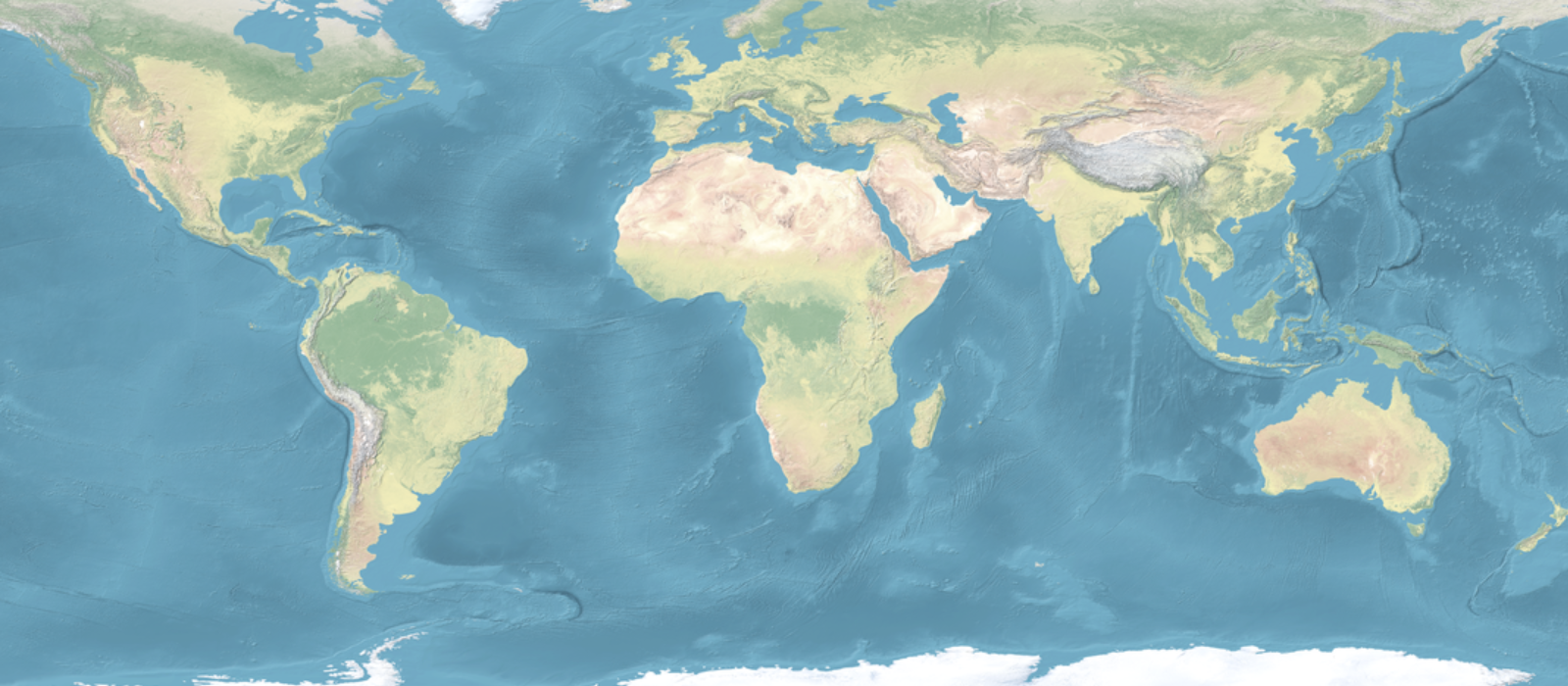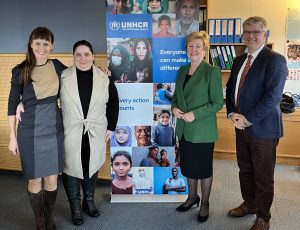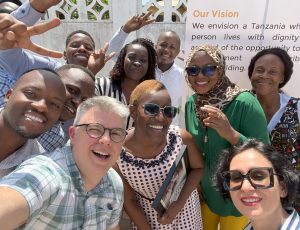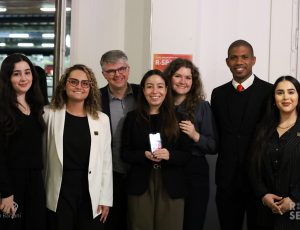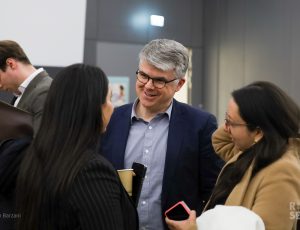by Nathaniel Whelan
According to the UN Refugee Agency (UNHCR), 110 million people worldwide were forcibly displaced from their homes by mid-2023 due to persecution, violence, human rights violations, political instability, economic hardships, and climate change.
As levels of forced displacement continue to rise, Carleton is contributing to improved responses through partnered research, teaching and training, and community engagement on a global scale.
Central to this action is Dr. James Milner from the Department of Political Science, who is using his position as co-chair of the Global Academic Interdisciplinary Network (GAIN) and as project director of the Local Engagement Refugee Research Network (LERRN) to amplify the voices of refugees and lead better research practices and policies.
Refugee Advocacy and the Role of Higher Education
Dr. James Milner has been an associate professor at Carleton since 2008.
His commitment to addressing displacement issues goes back to the early 1990s when he was a volunteer in Malawi at a time it was hosting a million refugees from Mozambique – an impactful gesture from a country of only 9 million people.
While in Malawi, he assisted in food distribution. This firsthand experience showed what was possible when refugees and host communities are supported, contrasted with the forced returns from Tanzania to Rwanda and the establishment of large, isolated refugee camps during the same period.
Emboldened to take action, Milner pursued his graduate studies at the University of Oxford and later found work with UNHCR in South Asia, West Africa, and at their headquarters in Geneva. This blend of academic inquiry and practical involvement led him to Carleton, where he continues to champion human rights initiatives.
Speaking to the ways in which the higher education sector can support refugees, Milner said:
“Our research can develop and test new approaches. Our teaching can provide new tools to the actors involved in finding solutions and inspire a new generation to engage in this critical work. And our institutions can leverage programs to provide educational pathways to permanent legal status and support the meaningful integration of refugees who arrive in our communities.”
Advancing Solutions Through Global Engagement
In November 2023, Milner was appointed co-chair of the Global Academic Interdisciplinary Network (GAIN), a group of 213 university members from countries around the world, formed from the Global Compact of Refugees (GCR), a framework for international cooperation affirmed by the UN General Assembly back in 2018.
This network is designed to advance the global response to the growing and complex topic of forced displacement and statelessness. Together with UNHCR and other relevant stakeholders, it facilitates research, training, and scholarship opportunities, as well as ensures regional diversity and expertise from a broad range of subject areas.
As co-chair, Milner’s role is to connect the work of its members, especially from major refugee-hosting states in the Global South, and with policy practitioners at the global level. This appointment was formalized in December with a Memorandum of Understanding between Carleton and the Office of the United Nations High Commissioner for Refugees.
Throughout his initial 3-year team, Milner will work alongside his counterpart Professor Liliana Lyra Jubilut from the Universidade Católica de Santos in Brazil.
“Having James as co-chair of GAIN is a privilege and a joy,” Jubilut said. “I’m sure during his tenure that the network will thrive and is best placed to succeed in the implementation of the Global Compact for Refugees.”
As new partners, Milner and Jubilut have identified a set of goals that support the objectives of the GCR to carry them through to 2027. Priorities include:
- Developing educational pathways and scholarship opportunities for displaced students
- Supporting localized research through collaborative funding proposals and mentoring programs
- Supporting refugee-led initiatives and regional networks, as well as advising policy decision-makers
- Facilitating research to ease pressures on host countries and supporting conditions in countries of origin for return in safety and dignity
Supporting Meaningful Refugee Participation
At the heart of Milner’s philosophy is the inclusion of refugees and other forced migrants as equal partners in all stages of the research process.
Research led by those with lived experience or local knowledge of forced displacement produces evidence that reflects those local realities. The integration of these perspectives leads to reliable intervention in protection and assistance, and contributes to transformative, long-lasting change.
“Ethically, refugees should be actively engaged in the design of policies and programs that affect them,” Milner said. “More generally, the sustained involvement of refugees in research, policy, and practice helps identify new solutions, improves the effectiveness of our responses, and helps ensure that they are seen as more legitimate by refugees themselves.”
Furthering his commitment to elevate the voices of forcibly displaced persons, Milner took part in a multistakeholder pledge at the Global Refugee Forum 2023 in Geneva this past December.
Held every four years, the Forum is the world’s largest international gathering on refugees, established to support the practical implementation of the objectives set out in the GCR. Approximately 4,200 participants from 168 countries attended, with more than 300 refugee delegates.
Over 1,600 pledges were made.
This oath serves as a starting point for longer-term engagement by investing in and amplifying locally produced knowledge and quality academic partnerships. The ultimate goal is to redistribute power and opportunities towards refugee communities and scholars based in low- and middle-income countries most affected by displacement.
Forced Displacement in the Global South
Roughly 85% of the world’s refugees are hosted in the Global South, yet nearly all the research that influences policy and practice on forced displacement originates from researchers in the Global North.
In response, the International Developing Research Centre (IDRC) in Canada has appointed 12 Research Chairs based at universities in countries experiencing mass displacement.

Hiram Ángel (Mexico), Luisa Feline Freier (Peru), Desiree del Rosario Sosa (Dominican Republic), Amal El Ouassif (Morocco), Tiga Alain Ouedraogo (Burkina Faso), Mary Setrana Boatemaa (Ghana), Abebaw Minaye (Ethiopia), Opportuna Kweka (Tanzania), Fouad M. Fouad and Houwayda Matta Bou Ramia (Lebanon), and Paula Banerjee and Nyi Nyi Kyaw (Thailand)
With $7.5 million in funding, this 5-year initiative aims to produce timely and innovative research on forced displacement in the Global South, specifically the regions where it challenges all levels of society. The research will be tailored toward policy solutions, using an interdisciplinary, multi-sectoral, and gender-transformative approach.
The Chairs will also collaborate with impacted communities, advocate with policy stakeholders, and mentor early career scholars.
“The IDRC Research Chairs Network is a groundbreaking initiative to shift power in the production of knowledge on forced migration issues,” Milner said. “By investing directly in the work of 12 independent Research Chairs across the Global South, IDRC has started to address inequalities that have privileged Global North perspectives in forced migration research for decades.”
The Local Engagement Refugee Research Network (LERRN) at Carleton, with Milner as project director, is playing a supporting role, assisting with the cooperation and mutual learning between the Chairs, as well as amplifying their work in global policy and research spaces.
Together, they are reframing the narrative of displacement and transforming the field of forced migration studies to mainstream Global South perspectives.
Conclusion
Through the work of Dr. James Milner and his partners around the world, along with the efforts of many others, Carleton University is helping develop viable and sustainable solutions for forced displacement, while empowering refugees and host communities through agency and fostering resilience.
Visit the Migration and Diaspora Studies website to learn more about all the exciting research Carleton faculty members are conducting in this field.
